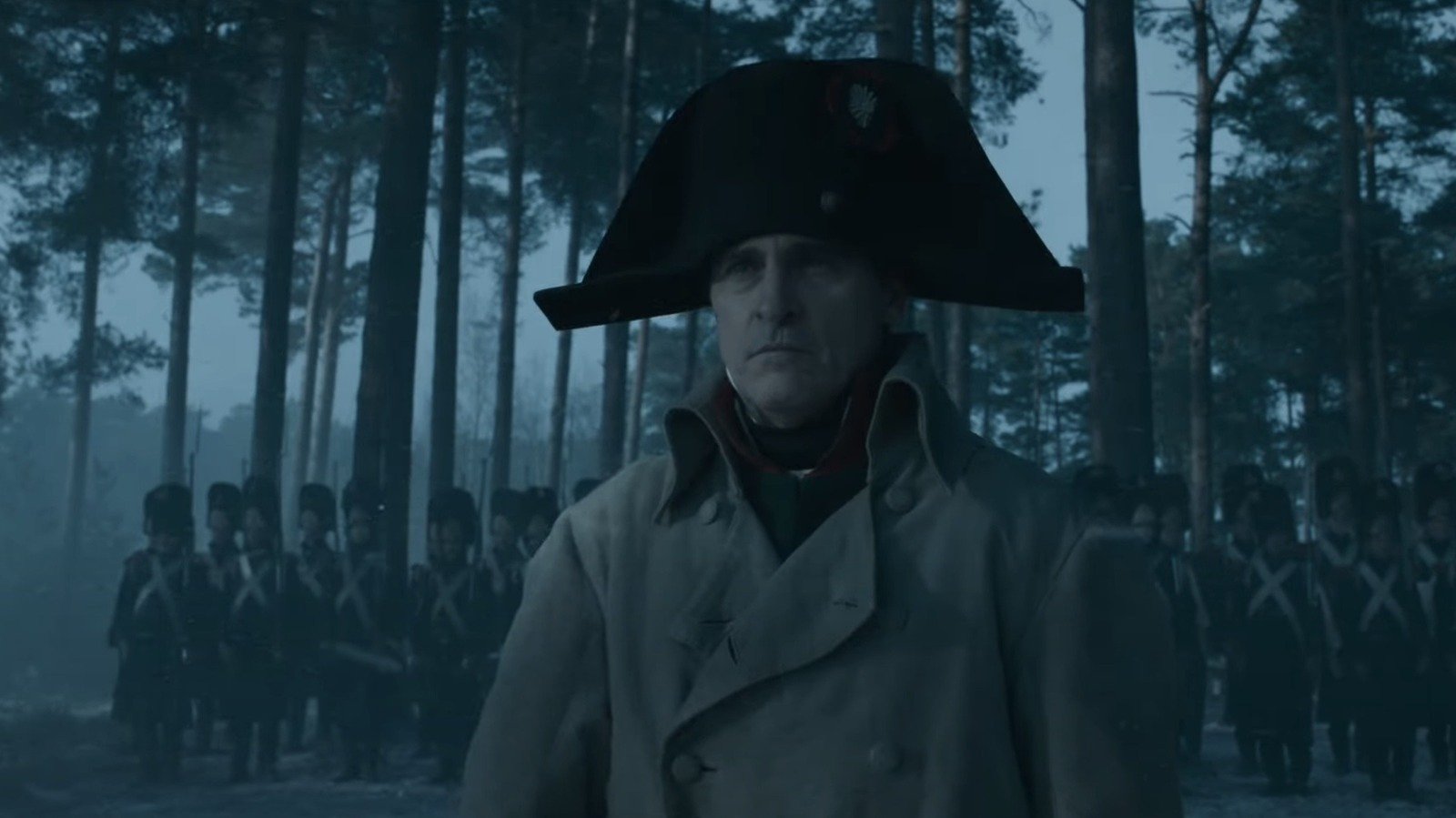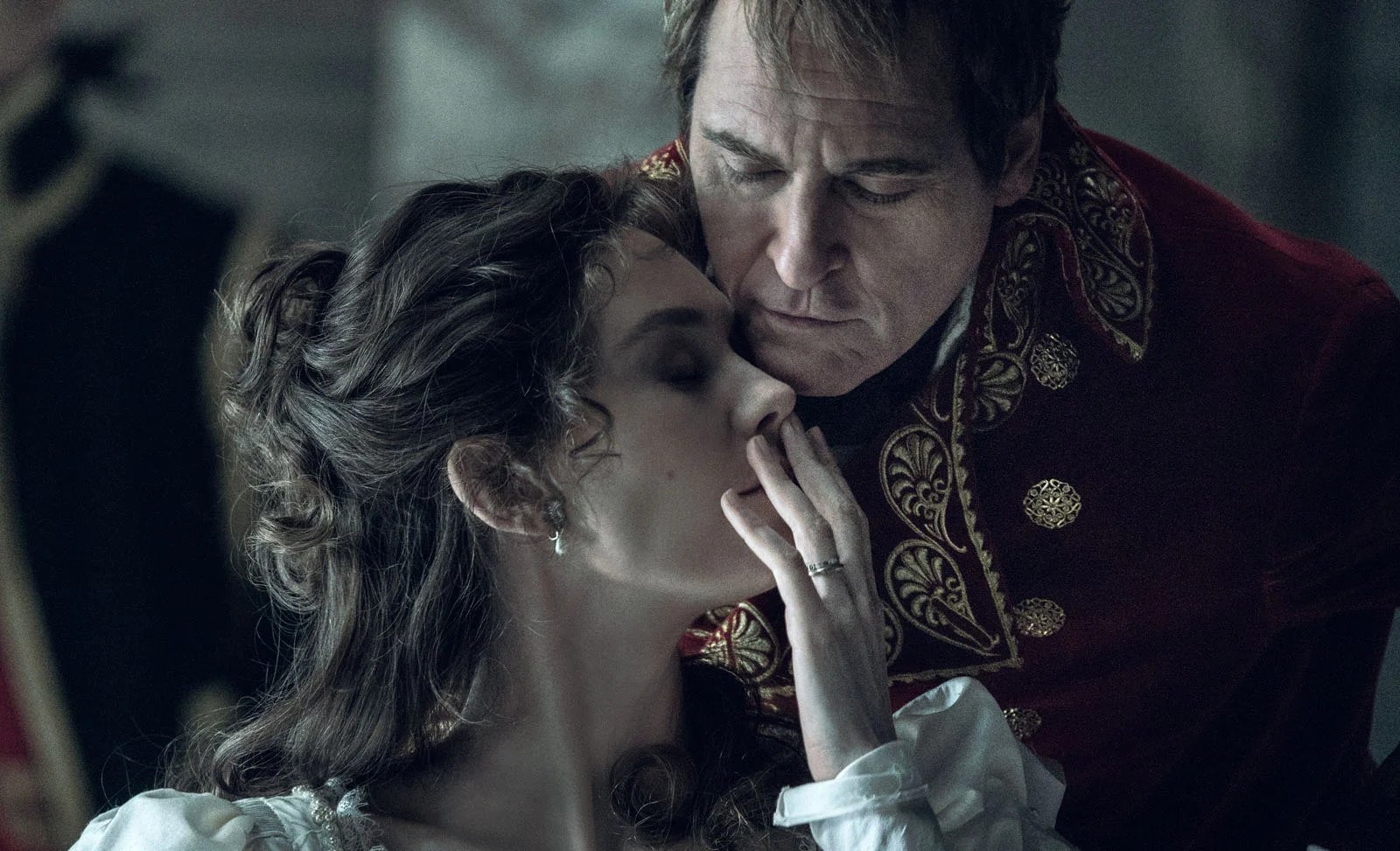Napoleon Review
5.5/10
Napoleon is the most frustrating cinema experience I’ve had all year. It had so much potential to be a new classic. It had a rich historical narrative to explore, a fantastic director, Ridley Scott, and a wonderful cast, including Joaquin Phoenix and Vanessa Kirby. Phoenix is a tad too old to play the role, but I was confident that he could pull it off considering how his performance in Beau Is Afraid is my favorite of the year. I could not have been more wrong. Napoleon is not a bad film; that would have been preferable, to be honest, so it could be easily dismissed as a complete misfire. Instead, it is utterly baffling.
There is nothing wrong with subverting history if it fits the story you are telling. Tarantino can get away with it since he is an exceptional writer and filmmaker. Ridley Scott himself did it very well not that long ago in The Last Duel. That film took the idea of a brave knight saving the damsel-in-distress, and showed us how distorted our perspectives can be when we see ourselves as the hero, while the person being saved can see the truth. Scott’s debut, The Duelists, is one of the greatest directorial debuts and one of my personal favorites. That film was set during the Napoleonic era too, so I was excited to see him tackle a slice of history he hasn’t delved into since the ‘70s.
Napoleon tries to condense the life of an extraordinary man into roughly 2-and-a-half hours. This was never going to work. Scott has already promised a 4-ish hour director’s cut being released in early 2024. I was going to wait to review the film until after I saw the longer version. After all, his director’s cut of Kingdom of Heaven turned an average-at-best film into one of his best. The core of Heaven was strong to begin with and just needed extensive development. I don’t think the center of Napoleon is compelling enough to warrant me being that optimistic about the prospects of more of what I already dislike. Frankly, I don’t think the film itself knows what its core even is.
The primary issue with the film is Joaquin Phoenix’s performance and how his version of Napoleon is written. I feel like the film was trying to make a grand statement about how we build up great leaders to be deities when they are just as flawed as the rest of us. That could have been a substantial and unique take on a leader who changed the world. Taking a similar approach that The Last Duel excelled at already, it would have been a smart approach to contrast Napoleon on the battlefield as the charismatic leader and brilliant tactician/politician versus the man at home.
The problem is that he does not have that fire in battle that commands armies. He comes across as a petulant manchild in most situations. The only difference between him at home and him in command is that when he is in battle mode, he has a perpetual frowny face and is more intense. I never believed that anyone would even follow him to the grocery store. His interactions with other people make him come across as an alien wearing human skin who has not yet figured out how to communicate. His interactions with his wife, Josephine (Vanessa Kirby) are easily the most engrossing part of the film. Kirby brings the woman to life and gives her far more dimension than Napoleon.
I try not to review a film by pondering the possibilities of what it could have been. I feel it is best to see it for what it is. I cannot help, however, being irritated by how much Scott squanders the potential in this story. Even though I love history, I am not a purist, so I would have been open to an unusual take on the time. From what I can tell, Scott was trying to paint the tale as a subversive dynamic between a great leader and his wife. Showcasing the nature of power in a relationship where you would think the advantage would lie with Napoleon. Instead, Josephine dominates his emotions so thoroughly that he calls off a military campaign in Egypt to go back home when he suspects her of cheating. The film is too superficial to explore this idea much beyond occasional glimpses of Napoleon being submissive to his wife. The only supposedly incendiary take this film attempts to display is the deep question: What if Napoleon was a jerk?
That is not exactly a hard-hitting idea. Napoleon’s legacy is complicated and nuanced. Many historians have differing viewpoints on him; some view him as a military and political genius who forever altered the European landscape, while others merely see him as a tyrant. I’m not here to argue with either side since, as usual, the truth lies somewhere in between. I have seen some describe the film as a satirical dismantling of Napoleon’s legacy. I don’t think the script even understands its own statement as it pinballs back and forth between satirizing him and praising his battlefield prowess.
The relationship between Napoleon and Josephine should have been the heart of the story. Their marriage was infamously tumultuous and passionate. Kirby does what she can do to anchor the film with her great performance, but she can only do so much when the material she is working with offers so little. Half the time I was confused as to whether she even liked Napoleon. The film tried to lean into dark comedy a few times, such as a painful moment where he tries to seduce Josephine by making animal noises. I like to think that wasn’t scripted and Phoenix just does that on every set to see if a director will keep it in the film.
The film is not without merit, and I do not like coming across as excessively negative. The cinematography by Dariusz Wolski is stunning as is every detail of the film. Even when I was feeling frustrated by the storytelling and character moments, I was awestruck by the visuals and how it perfectly recreated the look and feel of the era. There is a sense of grandeur and scale that Scott knows how to capture beautifully. Anything from the densely packed city streets in France to the sweeping battlefields are a sight to behold.
The battles themselves are where the film shines brightest. Even though they do not completely nail Napoleon’s strategic mastery, they are still suitably epic. The one that springs to mind was featured in the trailer where he takes Russian soldiers by surprise by smashing the ice beneath them with cannonballs. These scenes are few and far between. I am not the kind of person who goes to see a historical drama just for the battle scenes. They are certainly a nice spice in the stew, but the ingredients around it need to be standout and grip me as well. You can’t just have a bowl of seasoning, that’s weird.
This film had a monumental opportunity to be great, but you can’t summarize Napoleon’s life properly in under three hours. The film overlooks and speedwalks through far too many parts of history to work. It completely neglects his political influence and how his impact helped shape the world. I’m not saying the film had to cater to history nerds and elaborate on everything that made Napoleon important. If it wants to skewer and make fun of him, I’m for it. A dark comedy that twists our expectations about a great leader and focuses on the power dynamic with his wife would be potentially wonderful. Instead, we got a noncommittal and half-assed concept, albeit with stunning production values, and not enough substance to skewer a marshmallow.









